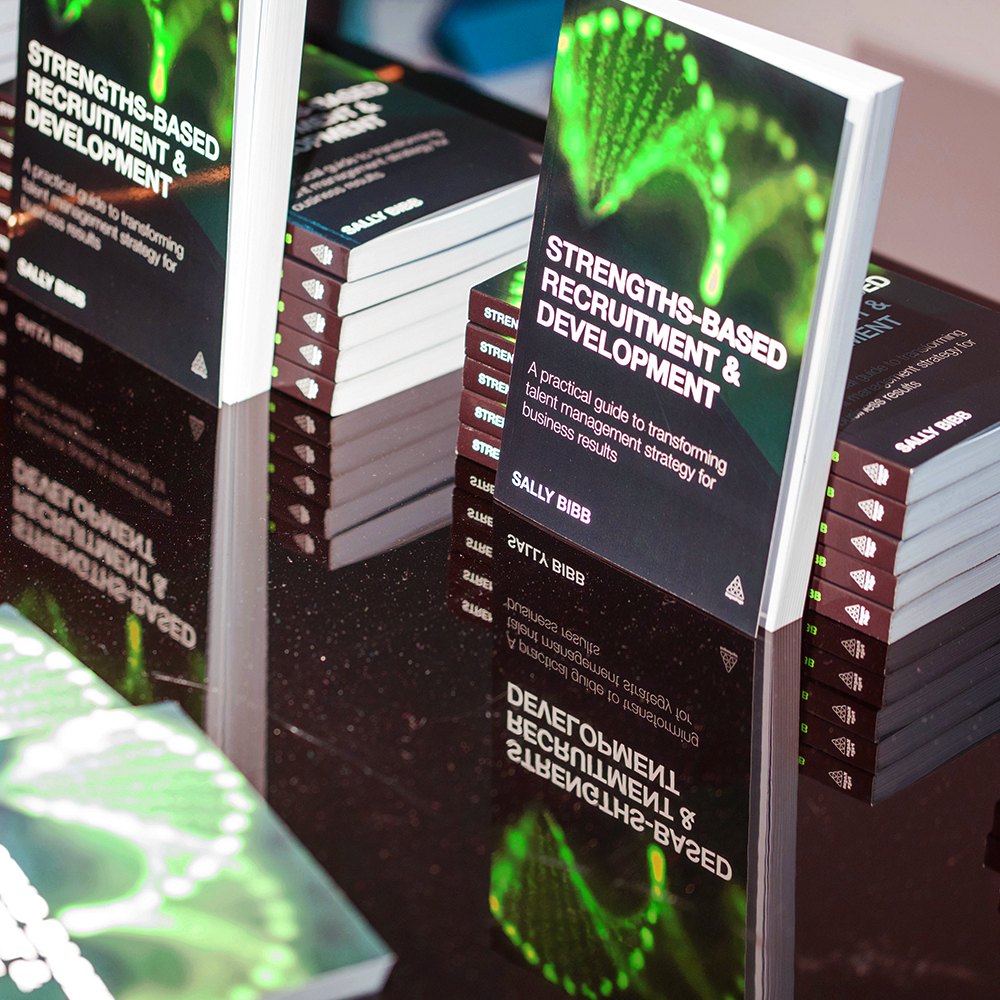
I am often asked about how to prepare for a ‘strengths interview’. Candidates realise the interview will be an experience they’ve never had before, so they tend to be anxious about it and want to know what they can do to get themselves ready. The first thing to know is that a strengths-based interview is fundamentally different from a competency-based interview.
The competency-based interview looks for evidence of what people have done. The usual competency-style “tell me about a time when…” question is easy to prepare for. In advance of the interview, for each likely scenario, you can think of an example of what you did, how you did it and the outcome of that. In contrast, in a strengths-based interview, the interviewers want to know what kind of person you are.
A common criticism that recruiters have of competency-based interviewing is that people can easily prepare, so their answers may feel mechanical. And, of course, there is no real way of knowing whether a candidate actually has the experience they are claiming to have when they give their prepared answer. This doesn’t serve the candidate or the interviewer. And it is one reason why both parties like strengths-based interviewing so much – you cannot prepare answers for a strengths-based interview, so the responses the candidate gives and the interviewer receives are spontaneous and therefore more real and authentic.
As Ed Fox (People and Change Strategist, Financial Conduct Authority) said to us, about the power of the strengths-based interview, “Nothing can prepare you for it [the interview], other than the collective wisdom of who you are in the moment.” In a good strengths interview the interviewers relax you and help you to express yourself, so that you feel heard. They really get to know you and what you bring.
So, back to the question. How can you prepare for a strengths interview?
There are two types of strengths interview. One is where you will be asked open questions like ‘What do you love doing at work?’ and ‘What energises you?’ You can have a think about those sorts of questions in advance, but there is great benefit from NOT doing so, to avoid coming across as though you are reciting prepared answers.
The other type of strengths interview is where the interviewers try to elicit whether you fit their strengths profile for a particular role. And again, you don’t want to appear to be trotting out prepared answers.
The best approach, in both cases, is to think about why you want to work for the organisation and why you are keen to get the job in question. Other than that, relax and be yourself. Easier said than done at times, I know! So, here are three specific tips to help you:
- Go into the interview with the intention to answer the questions as openly and honestly as you can in the moment. That way the interviewers will really get to know you and discover whether you are a good fit for the role. If you’re not a good fit, you wouldn’t enjoy the job or be successful in it anyway. This way of thinking will give you confidence.
- Get into a calm state for the interview. Steady breathing is a good and easy way to do it. Practise slow and deep breathing every day in the week leading up to the interview. This may seem a basic tip, but it really works – take some deep breaths, down to your belly. Do this before you go into the interview room and it will calm you.
- Approach the interview with an attitude that helps you feel confident and come across well – expect to enjoy the interview! Don’t see it as a test, but see it as a conversation with someone who is really interested in you.
Good strengths interviewers want get to know you as a person. And, by the time the interview comes to an end, you will feel that they do. If you get offered the job, you won’t fear that they haven’t discovered the important things about you. And if you do get the job, you will feel that the interviewer has made a well-considered judgement and knows exactly what the organisation will be getting when they appoint you.
Watch people talk about strengths-based interviewing
We have two short videos (you can see them below, each is just over 2 minutes long) about strengths-based interviewing on our new Engaging Minds YouTube channel. In the first video, people, from organisations that have already implemented strengths-based recruitment, talk about some of the differences between strengths-based and competency-based interviewing. In the second video, they highlight some of the benefits to candidates.

Sally Bibb’s book Strengths-based Recruitment and Development: A Practical Guide to Transforming Talent Management Strategy for Business Results (the first on the subject) is published by Kogan Page. Find the book at the Kogan Page website.

